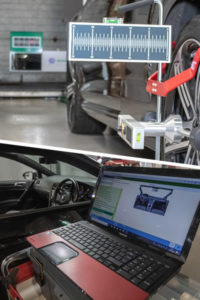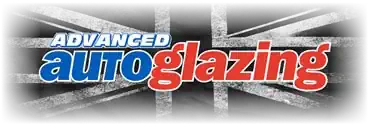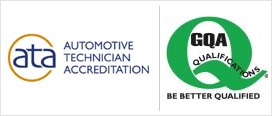
ADAS Calibration service
Advanced Driver Assistance Systems (ADAS) have become increasingly common in modern vehicles, offering a range of safety features designed to prevent accidents and protect drivers, passengers, and pedestrians. However, these systems rely on precise calibration to function correctly. When ADAS is not properly calibrated, it can lead to a range of issues that compromise the safety and performance of your vehicle.
Understanding ADAS
ADAS includes various technologies, including:
- Lane departure warnings
- Adaptive cruise control
- Automatic emergency braking
- Blind spot detection
- Forward collision warnings
These features use a combination of cameras, sensors, and radar to monitor the vehicle’s surroundings and assist the driver in navigating safely.
The Importance of Calibration
ADAS calibration ensures that all the sensors and cameras are aligned correctly and working in harmony. This process is crucial after certain events, such as:
- Windscreen replacement
- Collision repairs
- Suspension work
- Wheel alignment
Without proper calibration, the entire ADAS network can be thrown off, leading to potentially dangerous situations on the road.
Consequences of Uncalibrated ADAS
When ADAS is not calibrated correctly, several problems can arise:
- False Alarms: The system may trigger warnings when there’s no actual danger, leading to driver distraction and unnecessary stress.
- Missed Warnings: More critically, uncalibrated systems might fail to alert you to genuine hazards, defeating the purpose of having ADAS in the first place.
- Incorrect Interventions: Features like automatic emergency braking might activate at the wrong times, potentially causing accidents rather than preventing them.
- Reduced Effectiveness: Even if the system doesn’t malfunction outright, its performance may be suboptimal, providing less protection than it’s designed to offer.
- Legal and Insurance Issues: In some cases, driving with improperly functioning ADAS could affect your insurance coverage or lead to legal complications if an accident occurs.
Comparison: Calibrated vs Uncalibrated ADAS
To illustrate the differences, let’s look at a comparison table:
| Feature | Calibrated ADAS | Uncalibrated ADAS |
| Lane Departure Warning | Accurate alerts when crossing lane markings | May miss lane departures or give false alarms |
| Adaptive Cruise Control | Maintains a safe distance from vehicles ahead | Might follow too closely or break unnecessarily |
| Automatic Emergency Braking | Activates when genuine collision risk is detected | Could fail to brake or brake without cause |
| Blind Spot Detection | Reliably alerts to vehicles in blind spots | May miss vehicles or give alerts for non-existent obstacles |
| Forward Collision Warning | Warns of potential frontal collisions accurately | Could provide late warnings or false alarms |
Signs Your ADAS Might Need Calibration
How can you tell if your ADAS needs attention? Look out for these indicators:
- Warning lights on the dashboard related to ADAS features
- Inconsistent or erratic behaviour of ADAS functions
- False alarms from collision warning systems
- Adaptive cruise control not maintaining proper distance
- Lane departure warnings activating when you’re driving straight
If you notice any of these signs, it’s crucial to have your ADAS checked and calibrated by professionals.
The Calibration Process
ADAS calibration is a complex procedure that requires specialised equipment and expertise. It typically involves:
- Connecting a diagnostic tool to the vehicle’s computer system
- Using targets and sensors to align cameras and radar systems
- Performing a series of tests to ensure all components are working correctly
- Updating software if necessary
This process can take several hours and should only be carried out by trained technicians with the right tools and knowledge.
If you’ve recently had work done on your vehicle that might affect ADAS, or if you’re noticing any unusual behaviour from your driver assistance features, it’s crucial to have your system checked and calibrated.
For professional ADAS calibration services, contact Advanced Autoglazing at 01206 50 49 50 for a quote. Our experienced technicians can ensure your vehicle’s safety systems are working as intended, giving you peace of mind on the road.
FAQs About ADAS Calibration
How often does ADAS need to be calibrated?
ADAS should be calibrated after any work that could affect the system’s alignment, such as windscreen replacement or suspension repairs. Some manufacturers also recommend regular calibration checks as part of routine maintenance.
Can I drive my car if the ADAS isn’t calibrated?
While you can physically drive the car, it’s not recommended. Uncalibrated ADAS can provide false readings or fail to activate when needed, potentially compromising your safety.
How much does ADAS calibration cost?
The cost varies depending on the vehicle make and model, as well as the specific ADAS features. It’s best to get a quote from a reputable service provider.
Can I calibrate ADAS myself?
No, ADAS calibration requires specialised equipment and technical knowledge. It should always be performed by qualified professionals.
Will my insurance cover ADAS calibration?
In some cases, insurance may cover calibration if it’s part of a claim-related repair. Check with your insurance provider for specific details.




